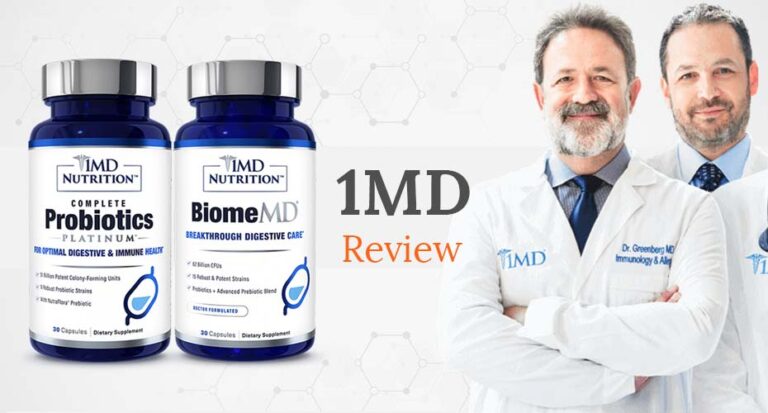What is a Vegan Protein Powder?
According to a 2019 study, most vegetarians maintain an adequate protein intake from dietary sources. [1] However, some supplement their protein intake by taking vegan protein powders.
Vegan protein powders contain plant-based proteins like pea, hemp, chia, quinoa, pumpkin, and sunflower seeds. These proteins help supply your body with essential and non-essential amino acids to support protein synthesis and muscle repair.
However, most protein powders on the market contain animal products or by-products such as whey protein. This makes it difficult for vegetarians to find a best vegan protein powder. This article reviews the best vegan protein powder in 2022. These products are 100% vegan and excellent alternatives to animal-based proteins.

Best Vegan Protein Powders – Image/Wellness Digest
Best Vegan Protein Powders 2022
- Organics Simple Organic Plant Protein Powder – Best Overall
- Garden of Life Organic Plant-Based Protein Powder – Best Organic
- Naked Pea Premium Pea Protein Powder – Best Pea Protein
- Amazing Grass Plant Protein Superfood Powder Vanilla – Best Vanilla Flavor
- Vega One All-in-One Plant-Based Protein Powder – Best Ingredients
1. Best Overall | Organics Simple Organic Plant Protein Powder
The Simple Organic plant powder contains protein derived from chia, pumpkin, peanuts, coconut, almonds, and golden peas. The powder also includes minerals like calcium, iron, vitamin D, and potassium that boost your overall health. Simple Organics is USDA-certified organic, 100% vegan, and free of dairy and soy products. It is available in various flavors like chocolate, vanilla, and peanut butter, making great additions to smoothies, shake, and baked goods. Each serving provides 20 grams of organic protein.
2. Garden of Life Organic Plant Based Protein Powder
Garden of Life Plant Based Protein Powder offers an easy and efficient way to increase your protein intake as a vegan. Each serving provides 30 grams of protein and 7 grams of carbs derived from lentils, navy beans, garbanzo beans, cranberry seeds, and peas. You can incorporate this vegan protein powder in your milk, water, shakes, and smoothies as it contains a tasteful vanilla flavor. The powder is NSF Certified and third-party tested; therefore, you can trust the safety and efficacy of this supplement.
3. Naked Pea Premium Pea Protein Powder
Naked pea has only one protein ingredient: pea protein. The protein has essential amino acids such as isoleucine, leucine, valine, histidine, lysine, methionine, phenylalanine, and tryptophan. The powder also contains minerals like iron, potassium, and calcium, which strengthen your bones and improve muscle function and metabolism. The powder is unflavored and blends easily with your favorite beverages, smoothies, and baked goodies. Each serving contains 27 grams of protein and 120 calories.
4. Amazing Grass Plant Protein Superfood Powder Vanilla
The brand Amazing Grass is dedicated to producing high-quality products with nutrient-dense ingredients. Its plant protein powder features 20 grams of complete vegan protein in each scoop. The protein is derived from quinoa, hemp, chia, and peas. The powder contains organic fruits and vegetables like pineapple, goji, acai, and sweet potato. It also includes a vanilla flavor sweetened with stevia. The product is USDA Certified, dairy-free, grain-free, and gluten-free. However, the product is not certified vegan or third-party tested.
5. Vega One All-in-One Plant-Based Protein Powder
Vega One contains quality ingredients like pea protein, flaxseed, chia, quinoa, mushroom powder, pumpkin seed, omega-3, kale powder, and maca root powder. It provides the essential amino acids for tissue repair, protein synthesis, and muscle gains. The protein powder also contains probiotics that help your body digest food and prevent diarrhea. It comes in different flavors like chocolate, coconut, vanilla, almond, mocha, berry, and plain unsweetened flavor. You can get the product on Amazon, Target, or Walmart.
What to Consider Before Buying the Best Vegan Protein Powder
Type of Protein
There are different types of vegan proteins, including hemp, almonds, chia seeds, pea protein, chicken pea, pumpkin seeds, brown rice, soy, and blue-green algae. These proteins contain essential and non-essential amino acids in varying quantities.
Some vegan protein powders contain all the nine essential amino acids, while others do not. It is vital to choose a vegan protein powder with all the nine amino acids, as they are more nutritious and beneficial for your body.
Ingredients Quality
Ensure that the vegan protein powder you settle for is made of high-quality ingredients. If possible, choose a powder made from organic and ethically sourced ingredients. Read the website to see if the product is certified vegan and organic. And whether it has undergone third-party testing, which guarantees clean and safe components.
Vegan protein powders contain additional ingredients like minerals, vitamins, sweeteners, and flavors. Some of these ingredients may be synthetic and non-GMO. Therefore, go through the ingredient list and steer clear of protein powders that contain artificial flavors, sweeteners, and preservatives.
Dosage
The daily recommended intake for protein is 0.8 grams per kg body weight or 0.36 grams of protein per pound of body weight. [2] However, protein needs depend on various factors such as weight, height, age, physical activity level, and general health status.
Most vegan protein powders contain an average of 15 grams of protein per serving. You can take a scoop of the powder daily with your shakes or smoothies. However, you can increase the dosage with the guidance of a healthcare professional.
Avoid powders with proprietary blends since the manufacturers do not disclose all the ingredients in the product and their dosages. So, there is no way of knowing whether you are getting the recommended dosage.
Brand’s Reputation
Reputable brands use clean and organic ingredients. They are also clear about their ingredients’ source and the scientific research behind their claims. Additionally, trustworthy brands have USDA certification and GMP approval. They also subject their products to third-party testing to ensure there are no harmful ingredients in their supplements.
Available Flavors
Vegan protein powders come in different flavors, including vanilla, almond, chocolate, peanut butter, strawberry, etc. Whichever flavor you choose, ensure it does not contain excessive sugar or artificial colors. You can also choose plain and unflavored powders and add fresh fruit and other flavored ingredients to create tasty shakes and smoothies.
Allergies
Some vegan proteins are made with common allergens that may cause symptoms such as bloating, diarrhea, abdominal pain, and distension. Therefore, ensure you go through the ingredient list and avoid powders with allergens if you have any food sensitivities or allergies. Some of the common allergens include soy, nuts, and pea protein.
FAQ
Q: Are Vegan Protein Powders Worth it?
A: Vegan protein powders are potent alternatives to animal proteins. They are great for vegans and people with food sensitivities such as lactose intolerance.
Vegan protein powders help reduce the risk of heart disease by lowering cholesterol levels. [3] They also contain healthy fats that are easy to digest and absorb. These fats help your body produce hormones and absorb fat-soluble vitamins.
Vegan protein powders also manage your appetite and keep you full for longer. [4] This helps you limit your daily calorie intake and prevent weight gain. Plant proteins also work with most diets since they are gluten-free and dairy-free.
Plant proteins provide essential building blocks for the muscles and other body tissues. [5] They also help in the production of enzymes and hormones. They also reduce inflammation and boost your metabolism. [6]
Vegan proteins also keep your gut healthy. They do not contain irritants or components that are hard to digest. Some also contain probiotics, which balance gut bacteria and reduce the symptoms of digestive disorders like inflammatory bowel disease. [7]
Q: Are Vegan Protein Powders Safe?
A: Yes, most vegan protein powders are made with natural ingredients that are safe for consumption. However, people react differently to the components in these protein powders. Some experience side effects such as nausea, vomiting, and bloating. These symptoms are minor and will disappear with time. However, if symptoms persist, consult your doctor.
Q: Are Vegan Protein Powders Keto-friendly?
A: Not all vegan protein powders are keto-friendly. Some contain added sugars and carbs that can kick your body out of ketosis. Therefore, if you follow a keto diet, look for a vegan protein powder that’s low in carbs and added sugars.
Also, if you prefer sweetened powder, buy one with stevia since it contains no carbs. Despite being high in sugar, stevia has zero glycemic index and does not break ketosis.
Q: How Often Should I take Vegan Protein Powders?
A: There is no hard and fast rule about taking vegan protein powders. However, most manufacturers recommend taking the protein powder daily in the morning. You can also take the powder before working out. Add the powder to your water, shakes, smoothies, or favorite drink, then head to the gym.
Q: Are Vegan Protein Powders FDA-Approved?
A: FDA does not regulate protein powders or supplements. However, vegan protein powders are NSF certified. NSF certification assures you that the product is tested to meet strict health standards.
Vegan products also have vegan certification. This assures users that the products contain no animal ingredients or by-products. It also means that the product was not tested on animals. Some vegan powders also have organic certification, meaning that the ingredients are 100% organic.
Conclusion
Vegan protein powders provide a convenient way to meet your daily protein needs. They also help the body repair cells and make new ones. There are numerous vegan protein powder in the market, but this article offers the best.
Whether you are on the go or trying to refuel after an intense workout, you can choose one of the vegan protein powders in this article for a refreshing protein boost. If you want an organic protein powder, get our best overall, the Organic Simple Organic Plant Protein Powder. You can also check out Greens Powder supplements that deliver essential nutrients to the body.
If you’re looking for Protein Powders, you can also read Best Red Superfood Powders Review and KOS Organic Plant Protein Review. It will give the information that you need.
At Wellness Digest, our sourcing guidelines are strict and we only use primary references for our articles including peer-reviewed studies, academic research institutions, and medical associations. You can learn more about how we ensure our content is accurate and current by reading our editorial policy.
- Mariotti F, Gardner CD. Dietary Protein and Amino Acids in Vegetarian Diets-A Review. Nutrients. 2019 Nov 4;11(11):2661. doi: 10.3390/nu11112661. PMID: 31690027; PMCID: PMC6893534.
- How much protein do you need every day? January 19, 2022, Harvard Health.https://www.health.harvard.edu/blog/how-much-protein-do-you-need-every-day-201506188096
- Li SS, Blanco Mejia S, Lytvyn L, Stewart SE, Viguiliouk E, Ha V, de Souza RJ, Leiter LA, Kendall CWC, Jenkins DJA, Sievenpiper JL. Effect of Plant Protein on Blood Lipids: A Systematic Review and Meta-Analysis of Randomized Controlled Trials. J Am Heart Assoc. 2017 Dec 20;6(12):e006659. doi: 10.1161/JAHA.117.006659. PMID: 29263032; PMCID: PMC5779002.
- Hertzler SR, Lieblein-Boff JC, Weiler M, Allgeier C. Plant Proteins: Assessing Their Nutritional Quality and Effects on Health and Physical Function. Nutrients. 2020 Nov 30;12(12):3704. doi: 10.3390/nu12123704. PMID: 33266120; PMCID: PMC7760812.
- Carbone JW, Pasiakos SM. Dietary Protein and Muscle Mass: Translating Science to Application and Health Benefit. Nutrients. 2019 May 22;11(5):1136. doi: 10.3390/nu11051136. PMID: 31121843; PMCID: PMC6566799.
- Hruby A, Jacques PF. Dietary Protein and Changes in Biomarkers of Inflammation and Oxidative Stress in the Framingham Heart Study Offspring Cohort. Curr Dev Nutr. 2019 Mar 28;3(5):nzz019. doi: 10.1093/cdn/nzz019. PMID: 31037277; PMCID: PMC6483052.
- Saez-Lara MJ, Gomez-Llorente C, Plaza-Diaz J, Gil A. The role of probiotic lactic acid bacteria and bifidobacteria in the prevention and treatment of inflammatory bowel disease and other related diseases: a systematic review of randomized human clinical trials. Biomed Res Int. 2015;2015:505878. doi: 10.1155/2015/505878. Epub 2015 Feb 22. PMID: 25793197; PMCID: PMC4352483.



 This article changed my life!
This article changed my life! This article was informative.
This article was informative. I have a medical question.
I have a medical question. Ask a Question
Ask a Question
 This article contains incorrect information.
This article contains incorrect information. This article doesn’t have the information I’m looking for.
This article doesn’t have the information I’m looking for.